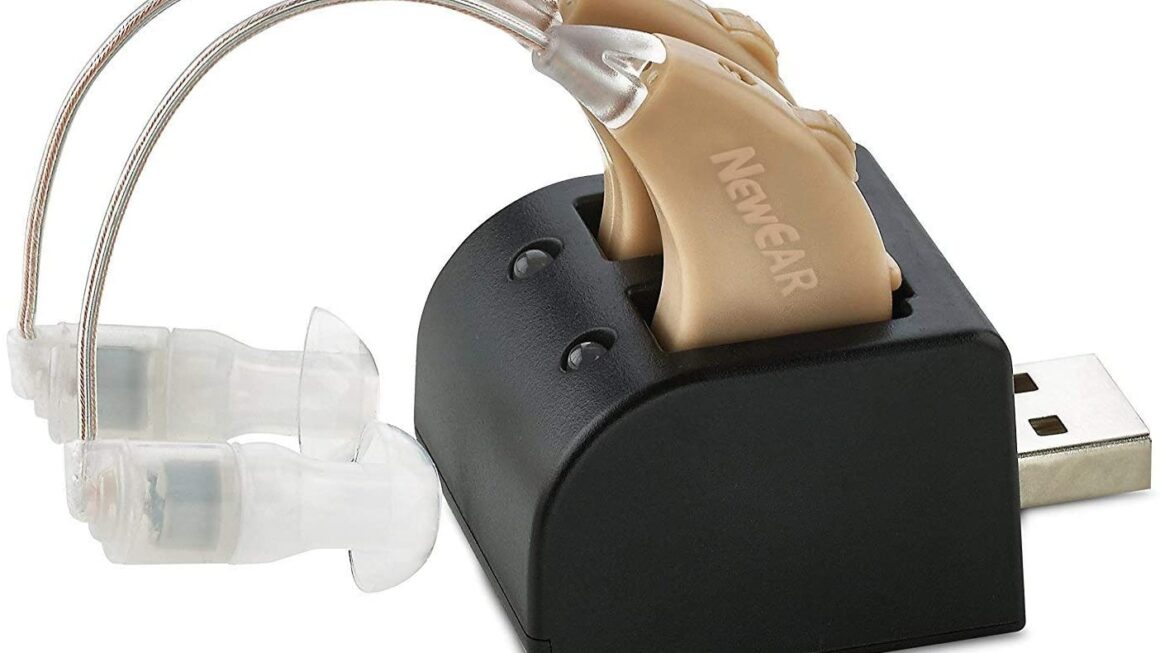Welcome to our post on using home concentrators to harmonize health! If you or a loved one are in need of supplemental oxygen, then you’ve come to the right place. Home concentrators offer a convenient and effective solution for individuals who require oxygen therapy but want the freedom to stay at home and maintain their daily activities. In this post, we will explore what home concentrators are, discuss their numerous benefits for overall health, delve into the different types available on the market, provide tips on how to choose the right one for your needs, and share personal testimonials from those who have experienced success with these devices. So let’s dive in and discover how home concentrators can be a game-changer when it comes to optimizing your well-being!
What are Home Concentrators?
Home concentrators are essential devices that provide a concentrated flow of oxygen to individuals who require supplemental oxygen therapy. These devices are designed for use in the comfort of one’s own home, allowing patients to maintain their daily routines while receiving the necessary oxygen support.
Unlike portable oxygen tanks, which need to be refilled or replaced periodically, home concentrators extract and concentrate oxygen from the surrounding air using advanced filtration systems. This means there is no need for frequent tank changes or deliveries, providing convenience and peace of mind.
One of the primary benefits of home oxygen concentrators is their ability to deliver a continuous flow of oxygen. Depending on the specific model and prescription requirements, these devices can supply a consistent level of therapeutic oxygen throughout the day and night.
Another advantage is that home concentrators are relatively compact and lightweight compared to traditional stationary units used in healthcare facilities. They are designed with user-friendliness in mind, featuring intuitive controls and easy-to-read displays that allow individuals to monitor their prescribed settings.
Additionally, most home concentrators operate quietly, ensuring minimal disruption during use. This allows users to enjoy activities such as reading or watching TV without any distracting noise or disturbance.
Furthermore, many modern home concentrators come equipped with safety features like alarms for low power levels or system malfunctions. These alerts help ensure that users can promptly address any issues that may arise during operation.
Benefits of Using Home Concentrators for Health
Home concentrators offer numerous benefits for individuals looking to improve their health and well-being. These devices, designed to deliver a steady supply of oxygen in the comfort of your own home, can have a significant impact on your overall quality of life.
One major advantage is improved respiratory function. For those with chronic lung conditions such as COPD or emphysema, home concentrators provide a constant flow of oxygen that helps alleviate symptoms like shortness of breath and fatigue. This increased oxygen intake can also enhance physical endurance and reduce the risk of complications related to low blood oxygen levels.
Another benefit is enhanced mobility. Unlike bulky tank systems that require frequent refills or replacements, home concentrators are compact and lightweight. They allow you greater freedom to move around your home without the hassle of lugging heavy equipment or worrying about running out of oxygen.
Additionally, using a home oxygen concentrator can lead to better sleep quality. Many individuals with respiratory issues struggle with disrupted sleep due to difficulty breathing during the night. By using a concentrator during sleep, you can ensure that your body receives sufficient oxygen while you rest, promoting more restful and rejuvenating slumber.
Moreover, these devices contribute to improved mental clarity and cognitive function. Oxygen plays a vital role in brain health; when deprived of adequate amounts, cognitive abilities may suffer. By providing an ongoing supply of pure air enriched with concentrated oxygen, home concentrators help sharpen focus, increase alertness, and boost overall mental well-being.
Lastly, but certainly not least important, is the convenience factor associated with using home concentrators. With technological advancements in recent years, these devices are becoming increasingly user-friendly and easy to operate, even for older adults or those who aren’t technically inclined.
Different Types of Home Concentrators
When it comes to home oxygen therapy, there are different types of concentrators available on the market. Each type has its own unique features and benefits, catering to the diverse needs of individuals requiring supplemental oxygen at home.
One common type is the continuous flow concentrator, which delivers a constant stream of oxygen at a fixed rate. This type is suitable for individuals who need a consistent flow of oxygen throughout the day and night.
An additional choice is a pulse dose concentrator, which releases oxygen in brief pulsations in response to inhalation. This type is ideal for those who only require supplemental oxygen during certain activities or periods of exertion.
There are also portable concentrators that offer mobility and freedom for users. These lightweight devices allow individuals to continue their daily activities while receiving the necessary oxygen support.
Additionally, some sophisticated models offer users with different respiratory requirements flexibility and versatility by combining pulse dose and continuous flow settings into a single unit.
It’s important to consult with your healthcare provider or respiratory therapist to determine which type of home concentrator suits your specific needs best. They can assess your condition and lifestyle factors and prescribe an appropriate device accordingly.
How to Choose the Right Home Concentrator for You?
- Oxygen flow rate: The flow rate of oxygen is an essential consideration as it determines how much oxygen you will receive per minute. Consult with your healthcare provider to determine the appropriate flow rate based on your oxygen prescription.
- Portability: If you anticipate traveling or moving around frequently, portability becomes an important factor in choosing a home concentrator. Look for lightweight models with wheels and handles for easy transportation.
- Noise level: Some concentrators can produce noticeable noise levels, which may be bothersome if you plan to use it while sleeping or in shared living spaces. Opt for quieter models that operate at lower decibel levels.
- Power source: Home concentrators typically require electricity to function properly, so ensure that the unit you choose aligns with your existing power source capabilities.
- Size and design: Consider the size and design of the concentrator, especially if space is limited in your home environment. Choose a model that fits comfortably within your living space without causing obstructions or inconveniences.
Tips for Proper Use and Maintenance of Home Concentrators
Proper use and maintenance of home oxygen concentrators are essential to ensure optimal performance and longevity. You can maximize your device’s potential by following these tips:
- Read the user manual: Familiarize yourself with the manufacturer’s instructions on how to operate and maintain your specific home concentrator model.
- Positioning: Place the concentrator in a well-ventilated area, away from obstructions such as curtains or furniture that could restrict airflow. Ensure there is ample space around it for proper ventilation.
- Regular cleaning: Clean the exterior surfaces regularly using a mild detergent or disinfectant wipes. Be cautious not to spill any liquids into the unit.
- Filter maintenance: Check and clean/replace filters as recommended by the manufacturer to prevent dust accumulation, which can affect performance.
- Power supply: Connect your home concentrator directly to an electrical outlet, avoiding extension cords or power strips that may cause voltage fluctuations.
- Regular servicing: Schedule regular maintenance checks with an authorized technician to identify any potential issues early on and keep your concentrator running smoothly.
Conclusion
Home concentrators offer a convenient and effective solution for individuals in need of supplemental oxygen therapy. These devices provide a steady supply of oxygen, helping to improve overall health and quality of life. So if you or someone you know could benefit from supplemental oxygen therapy, consider exploring the option of using a home concentration device. Speak with your healthcare provider today about whether this treatment modality may be suitable for your specific needs.












